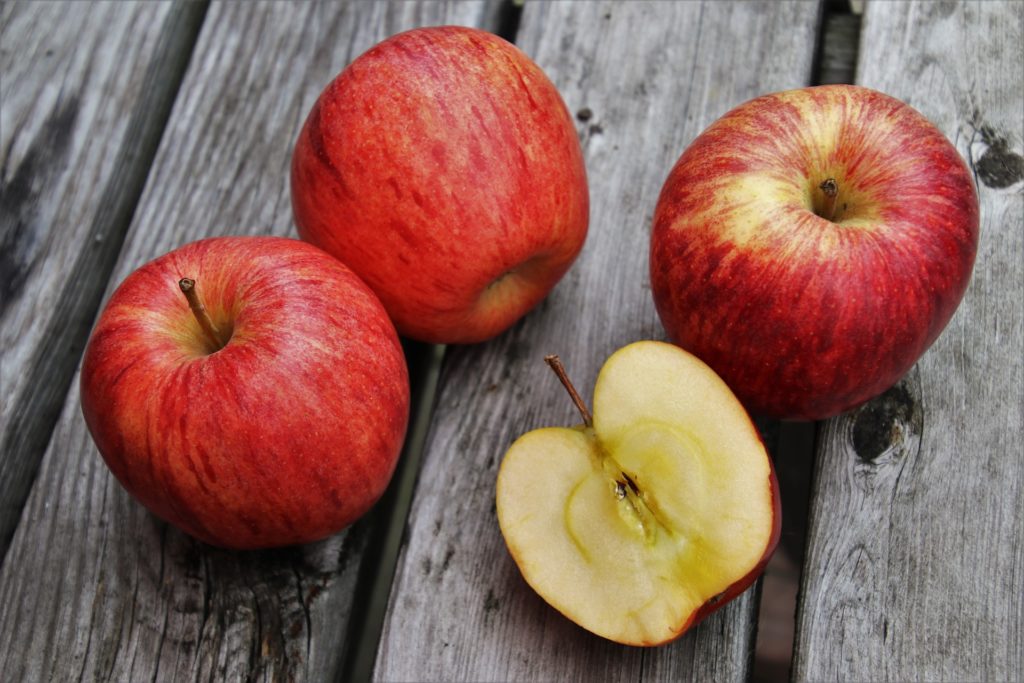Have you ever eaten a particular raw fruit or vegetable, or some nuts like walnuts or pecans, and noticed that your mouth or throat is suddenly itchy? If you suffer from seasonal allergies, what you’re experiencing might be Oral Allergy Syndrome, also known as Pollen Food Allergy Syndrome.
What causes OAS is cross-reacting allergens that can be found in both pollen and some raw produce and nuts. So, if you’re allergic to a certain type of tree pollen, you might find there are certain fruits that cause your mouth to itch.

Interestingly, OAS seems to present in older children, teens or even adults. As children most people are able to eat these same fruits and vegetables raw with no side effects. Also, most people can eat the same fruits and vegetables cooked with no problems.
Usually the symptoms of OAS do not travel further than the mouth and there is very little chance (though it has occasionally been reported) of OAS causing anaphylaxis.
If you’re curious about the types of foods / pollens that often have this cross-reacting effect, check out our table below:
| Pollen | Fruit / Vegetable |
| Birch Pollen | Apples, almonds, carrots, celery, cherry, hazelnuts, kiwis, peaches, pears and plums. |
| Grass Pollen | Celery, melons, oranges, peaches, tomatoes |
| Ragweed Pollen | Bananas, cucumbers, melons, sunflower seeds, zucchini |
Not all those who are allergic to ragweed, for instance, will experience OAS when eating bananas or cucumbers. In fact, every allergy patient will manifest their allergic sensitivities in different ways.
The basis of an allergic condition is the ability of the body’s immune system to produce the “allergic antibody”, also known as IgE. ( There are literally thousands of possible specific IgE antibodies, such as cedar IgE, ragweed IgE, oak IgE, etc. ) This is an antibody class that will not be prevalent in the non-allergic patient and very prevalent in the allergic patient. The development of a specific IgE in a given patient is based on exposure to the allergen and the patient’s genetic makeup. Unlike other antibodies that we want ( and which are protective against various diseases ), IgE is one that we really do not want …. but which the allergic patient has in abundance. In a real sense, it is a sign of an over-active immune system, with the development of an antibody that “harms” us. The allergic response is based partly on how much specific IgE one has (e.g., ragweed IgE) and where in the body the “target mast cells” are located. For instance, some patients with ragweed allergy will have rhinitis (nasal allergies), some will have asthma (wheezing and shortness of breath), some will have atopic dermatitis (eczema), some will have the oral allergy syndrome when they eat “cross-reactive antigens” (in the case of ragweed allergy, bananas and melons are cross-reactive), and some will have all of the above. This is the challenge of finding out what causes a patient’s symptoms and is what keeps allergists busy every day! The key to managing Oral Allergy Syndrome is to work at managing the inhalant allergies, with avoidance, medications and immunotherapy.
If you want to learn more about Oral Allergy Syndrome or your pollen allergies, contact Dr. Hallett today!